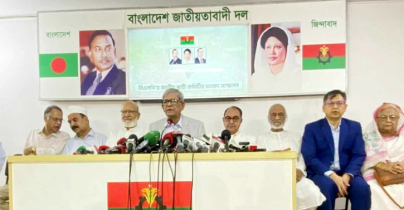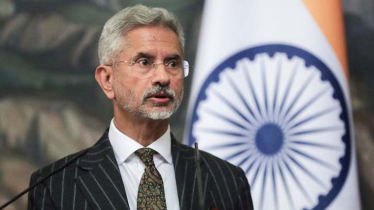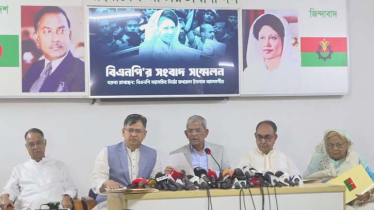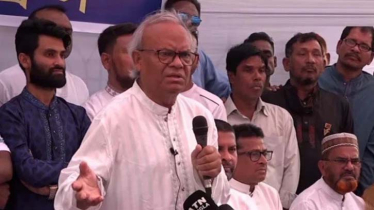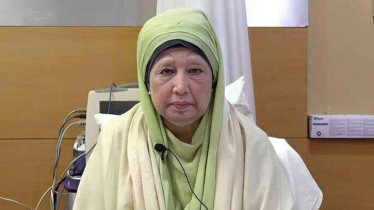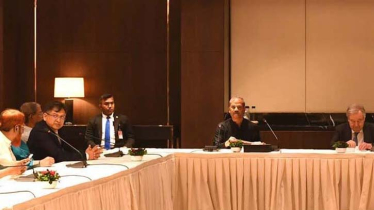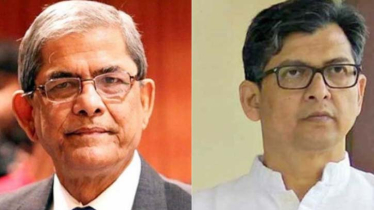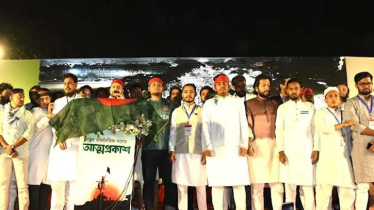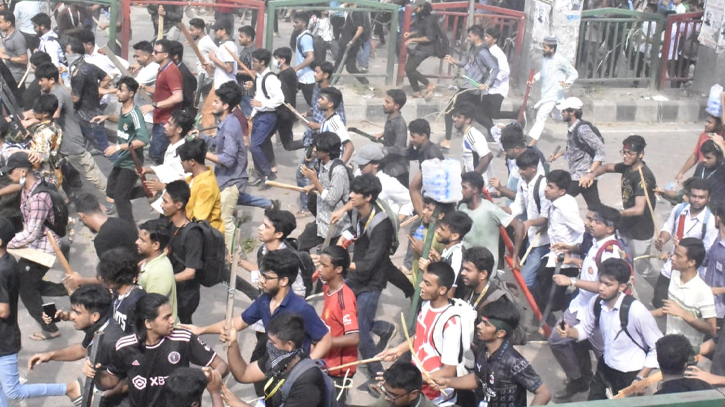
Photo : Messenger
The political landscape of Dhaka has been marred by violence and chaos stemming from the ongoing quota reform movement. Reports indicate that over fifty groups of the student organization Islami Chhatra Shibir, linked to the opposition party Jamaat-e-Islami, have been actively involved in orchestrating attacks against police and leaders of the Awami League. The objective behind these acts appears to be a coordinated effort to eliminate opposition and disrupt law enforcement.
According to sources, the Shibir groups have mobilized cadres from across the country, gathering in various areas of the capital to carry out their mission. This movement has led to tragic incidents, including the brutal murder of police officers and student leaders from the ruling party. Notably, the assassination of Dhaka College's student leader, Sobuj, has been attributed to Shibir activists. The situation has further escalated with Shibir operatives allegedly issuing directives to their field workers via the Telegram app, indicating a well-organized structure behind the violence.
Moreover, Shibir has been accused of spreading disinformation across numerous Facebook groups and social media platforms to manipulate the quota movement into a broader campaign aimed at toppling the government. The coordination among these groups has been particularly alarming, with police forces targeted as part of a strategy to undermine state authority. The police, in response to these threats, have made several arrests, including that of Masud Rana, the mastermind behind the killing of two police officers in the capital’s Jatrabari, alongside five others.
Mohammad Harunur Rashid, the Additional Commissioner of the Detective Branch (DB) of Dhaka Metropolitan Police (DMP), revealed that the violence aimed to weaken the police force under the guise of the quota reform movement. He said that both the BNP and Jamaat have repeatedly attempted to illegitimately overthrow the democratic government, often targeting law enforcement in the process. Harun noted the troubling pattern of using vulnerable student groups as shields during protests, ultimately targeting police and state institutions.
On October 28, Harun recounted, there were significant assaults on state structures, including attacks on judges' residences. The attackers openly announced a reward of 10,000 takas for those who successfully harmed police officers, demonstrating their intent to instill fear among law enforcement. He emphasized that the primary goal of these operations was to demoralize police forces, with the belief that weakening them would pave the way for a successful movement against the government.
The DMP has committed to legal actions against those responsible for the violence, including the assassination of police and civilians, as well as vandalism at state properties like the Metro Rail system. In a recent raid at a secret Shibir hideout in Hasnabad, Keraniganj, four Shibir leaders were arrested, with evidence of orders given to them being discovered on their mobile devices.
Intelligence sources have indicated that trained groups from Jamaat-e-Islami have been instrumental in leading the unrest, creating havoc throughout various neighborhoods in Dhaka, including Rampura, Badda, and Uttara. This coordinated attack also included the leadership behind the assaults on state properties, with Shibir’s organizational structure enabling them to conduct strategic operations.
Joint Commissioner of DMP, Biplob Kumar Sarker, mentioned that the BNP-Jamaat coalition had plotted to exploit the quota movement to undermine the government. The DMP is actively working to track and apprehend individuals linked to these violent incidents, regardless of their hiding places.
The turmoil in Dhaka has escalated to a point where violence has resulted in widespread destruction of government property, leading to the suspension of services like the Metro Rail due to significant damage. Fires have consumed critical documents at the Health Department and other government buildings, disrupting essential services across the country. The infrastructure damage extends to various government offices, transport authority buildings, and media centers, resulting in severe operational setbacks.
In response to these incidents, the Ministry of Bridges has constituted a seven-member committee to investigate the extensive damages. The fallout from these violent protests poses a grave threat to public safety and governance, calling for urgent measures to restore order and accountability in Dhaka. As the investigation unfolds, the focus remains on bringing those responsible for the violence to justice and preventing future occurrences of such unrest.
Messenger/Fameema

